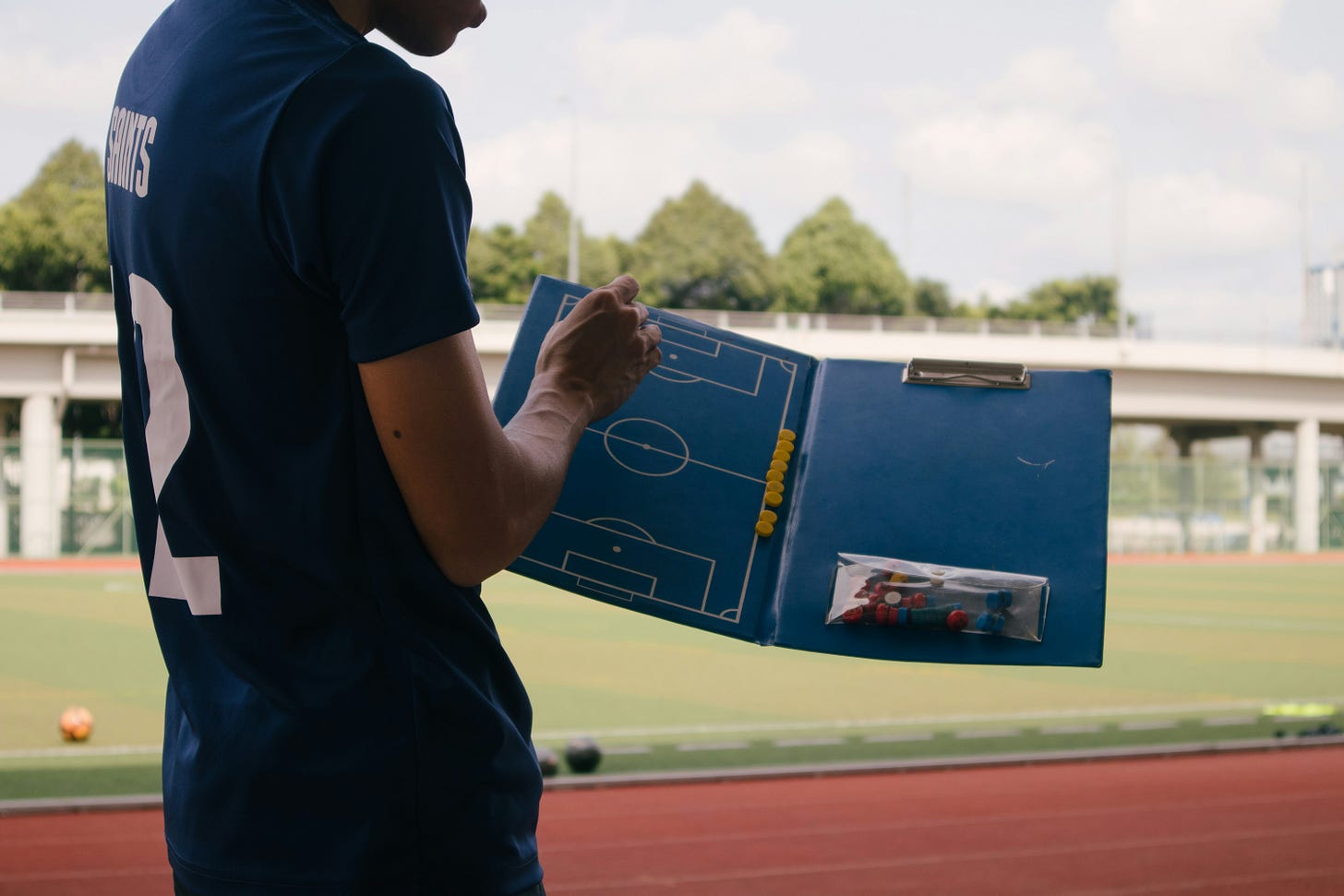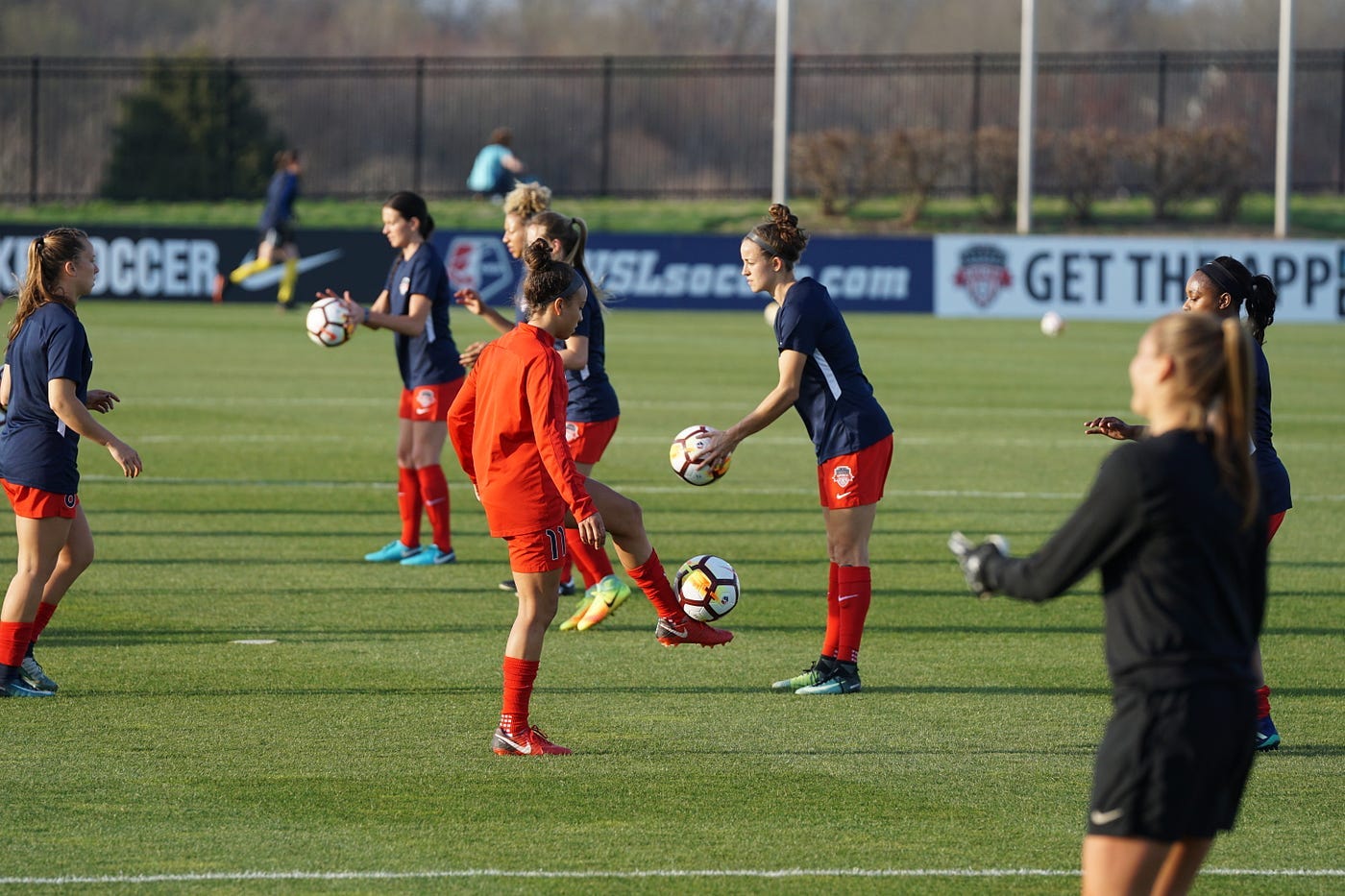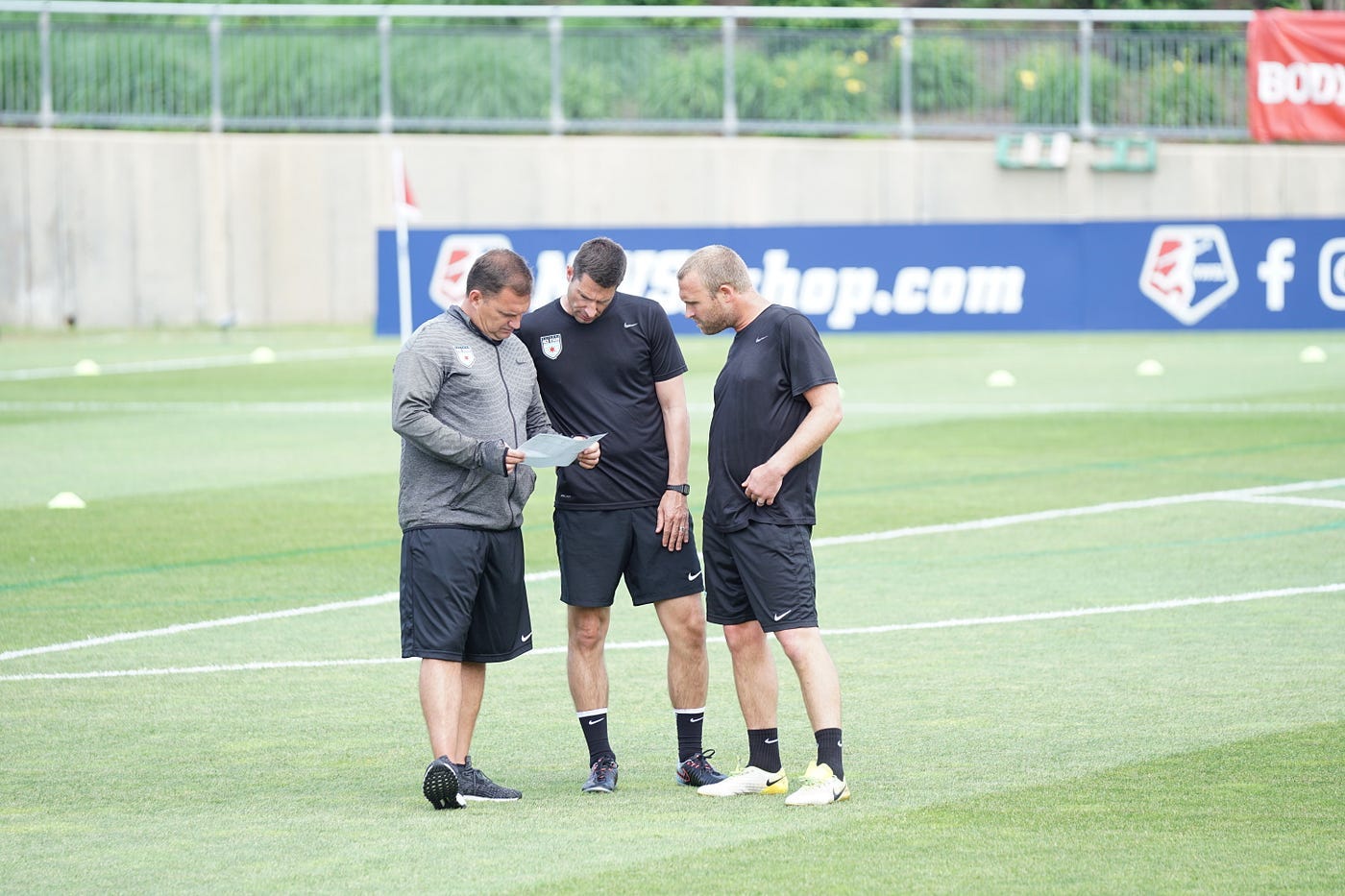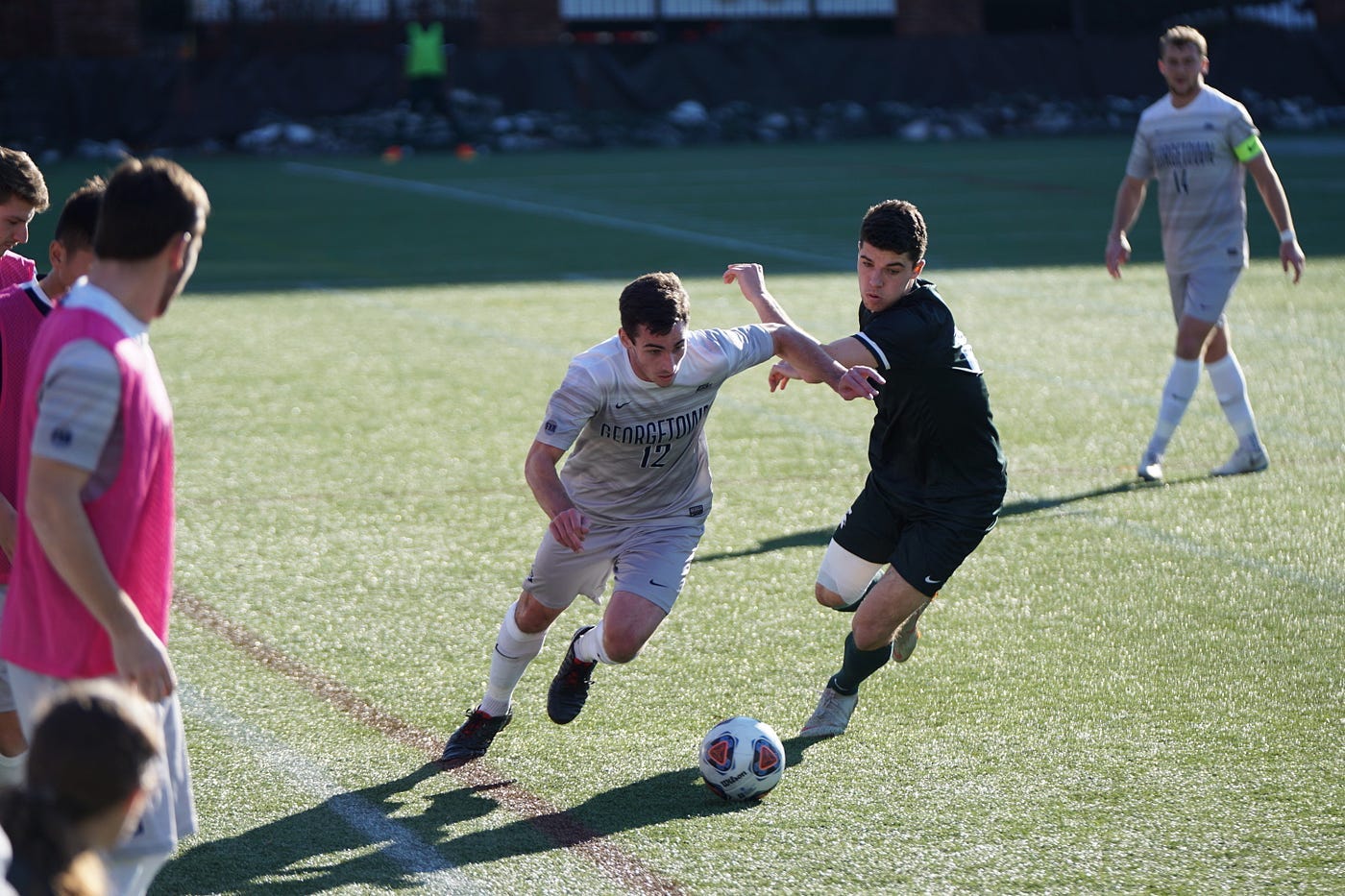Why Soccer Coaching Feels Like Puzzle Solving
Stillness 6 – On the dimensions of coaching, Lionel Messi's insights on decision making, the value of practising open-mindedness, and integrating sport psychology.
Hi readers, thank you for being here. I continue to be fascinated and inspired by this platform as it encourages diverse, creative and engaging perspectives.
Since the trailer sometime back, the publication has had a long-form article, an infographic, and straightforward, comprehensive, and international sport psychology education and sport mental health resources.
Writing here feels more natural and direct to have a conversation, which just doesn’t feel the same way on social media platforms (speaking for myself only). I prefer most endeavours of mine to have simplicity at their centre so that focusing on the process becomes habitual. So writing in a community away from the cacophony is certainly one of those endeavours.
Looking at you, mind numbing 12 second reels with loud music, a voice over, text written on the video AND a mile-long caption attempting to present elaborate recipes that chefs in reality take twelve and a half minutes to explain. Or maybe I’ve not yet evolved to fathom lightning fast videos about the most complex topics without any nuance whatsoever. But we won’t go there, at least not today.
I’m always open to any feedback, words of wisdom, and ideas, so I’d be happy to hear from you.
If you’ve somehow found your way here and don’t know what this is all about, may I nudge you to head over to Seeking Stillness in Sport – Start Here.
Hope you enjoy,
— Shaan
Soccer has always been a highly psychological game fuelled by individual competing minds. With practice, those minds gel together to become collective instincts — ready to build the play, to attack and to defend. Here is what I have come to learn about soccer coaching from my playing experience and through a psychological perspective.
Every coach at a (professional) soccer club has had to ponder over innumerable thoughts and scenarios once they have taken charge. From getting to know the players better and conveying to them the playing philosophy to eventually executing the tactics when it matters the most.
How does the squad look like? What are the players’ temperaments? What are the best ways to communicate with them? How do a group of diverse players play and be together?

Coaches wear many hats on and off the ground — being mentors and motivators to players, educators to parents and everything in between. They have the opportunities to create a positive lasting impact on players by guiding them to recognize their strengths and turn their weaknesses into assets.
Soccer coaches are always putting together an elaborate puzzle — arranging pieces, re-arranging them and then again putting them back where they may belong. These pieces being finding the appropriate strategies, helping players reach optimum technical skills and fitness, and motivating them to leave everything on the field. Every single day. Week in and week out.
As a former soccer player, I have had the privilege of playing under multiple coaches who have contributed towards my growth not only in the sport but well beyond it. What I have learned by being on the ground has stayed with me for longer than what the four walls of an institution could do. The only reason for that has been soccer’s unique ways of evoking feelings within me and help me learn by being and doing. Our then coach at Pune Football Club, Gift Raikhan’s short and emotionally rousing speech before an important match left me feeling a burning desire to play my best and help the team win.
The feelings that a coach evokes are so incredibly important — do players end up feeling scared half of the time? Do they feel happy to be themselves on the ground? How eager are the players to master their skills and show up for training tomorrow?

Feelings set the tone for training sessions and matches. Or they make things go downhill, quickly, and frequently. As Lionel Messi says, “the best decisions aren’t made with your mind but with your instinct. The more familiar with a situation you become, the quicker the better your decisions will be.”
To guide soccer players to play with their instincts is a long journey worth the efforts and struggles. Here is one way to start.
Willingness to be open
We require a certain kind of openness to shift through pieces, contemplate and work our way through the discomfort to eventually solve a jigsaw puzzle.
Often times, and also depending on the culture, we teach players what to do and think, instead of how to think for themselves. There are way too many matches where players are getting yelled at constantly: pass long, shoot, hold the ball for longer and more. Yelling is not a problem; this is football/soccer and that’s natural. But what does pose a serious threat is if players only get used to playing through external instructions. A simple reflection to consider is “Am I doing all the thinking or am I helping the players think?”
A coach’s open mindset helps players have the freedom to think for themselves, strategize and learn through experiences — through doing. Mistakes become opportunities to learn, instead of trying to frantically avoid.
Through this openness, it becomes helpful to manage players with different attitudes and personalities. Players realize they are playing for themselves and for the team — for a feeling larger and deeper than their individual selves.
Unwavering support
Coaches form the foundation on which the puzzle rests. A stable puzzle comprising of a cohesive team with physically fit and mentally strong players, after all, deserves a solid base.
Besides tactical guidance, players require mental and emotional support. The last 2 minutes of extra time in a decider match feel like forever. Players undergoing injury rehabilitation feel complex emotions to say the least. Financial and logistical restrictions hamper the effectiveness of training and the team’s progress. There are unending ways which make the puzzle shaky. But through rain, storm and sunshine, coaches motivate players and instill perseverance in them. Players who grow under the guidance of such coaches realize they are challenged, but they also have the support to manage those challenges and extend their comfort zones.

Defining process-oriented goals
As we make our way through a jigsaw puzzle, the aim is simple: focus on each piece at a time and form a gradual mental picture of how the puzzle is taking shape.
Similarly, in the instant gratification era, a coach who stresses upon making small improvements every day is the one to cherish. Hold them close and believe in them. While chasing big goals, it is all too easy to focus solely on the results. An aware coach ensures the desire to win remains, while the focus shifts to executing the process successfully.
A lesson football continues to teach me in different ways is doing what I can with what I have — to trust the process and persevere.
Creating a positive nurturing space
With openness, unconditional support and setting process related goals, it is possible to create a positive space where players can be themselves. They see opportunities to grow individually and contribute to their teams’ development.
Much has been said and done about psychological techniques being used like visualization, breathing, self-talk and more. While they are certainly important, let’s not forget that players, coaches, and the support team exist in a particular space, an environment. Each academy and team have their distinct culture.
So, focusing on solely applying the psychological techniques without acknowledging the existing environment nor understanding players’ social and cultural backgrounds may be effective, but in a limited manner. Without giving players a broader and deeper orientation about the role of psychology, we risk conveying to them that their off-field experiences and life are completely unrelated/detached to their on-field performances — that no matter what is happening in their lives, they are always expected to perform with the help of certain techniques.

Integrating sport psychology
The pressure to perform which coaches feel trickles down to players. With football becoming highly commercialized and the constant rise in young players, there is a need for sport psychologists to be integrated in team setups to support footballers to manage their stress and pressure. Being able to adapt to the team culture comfortably allows players to focus on improving themselves.
Psychological elements are always influencing the performances of teams, dynamics between players and many other areas. The only question that remains is if we choose to acknowledge this and proactively act.

Mental techniques surely enhance players’ confidence, focus and composure. But when we take efforts to build a positive and safe environment and make counselling sessions a part of the team culture, players realize that they matter beyond sport, as humans. Not just as footballers expected to deliver impressive performances as a part of their contract.
Sport psychology is not just about psychological skills training. The field is also about supporting players’ mental well-being and giving them the power to understand themselves deeper through counselling-based interactions with qualified and trained professionals. Applying mental training has occasionally been projected as “telling” players what to do and what to think. Because that is what may yield the fastest results, but not necessarily consistent and positive ones. But in fact, sport psychology is about guiding players to find their own answers by asking pertinent questions to develop their self-awareness.
How can you make sport psychology a part of your academy culture?






